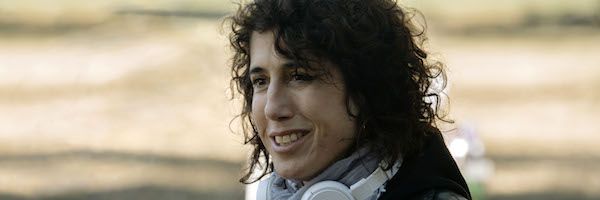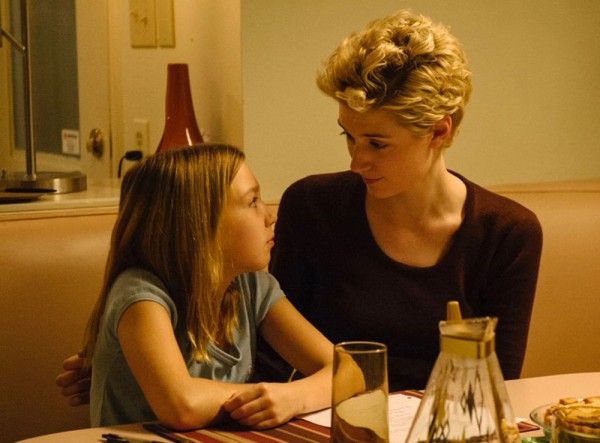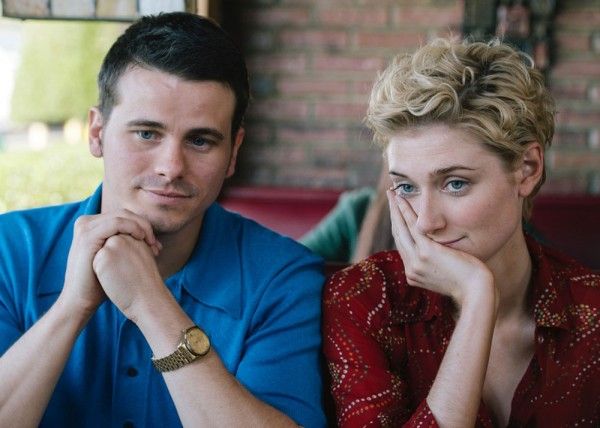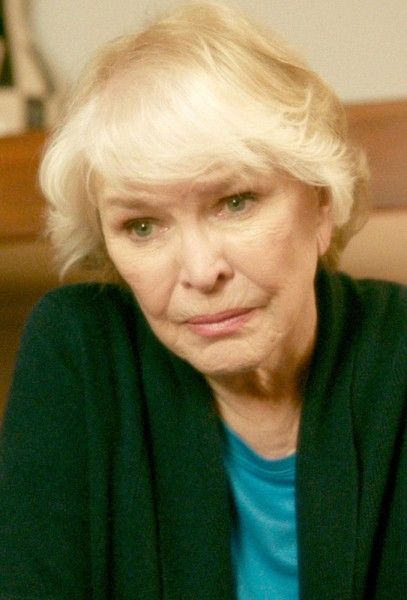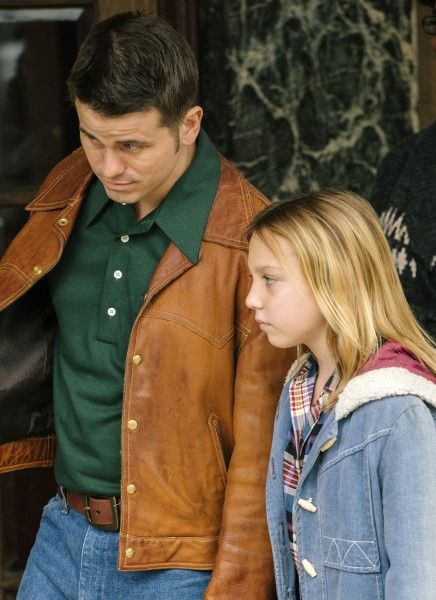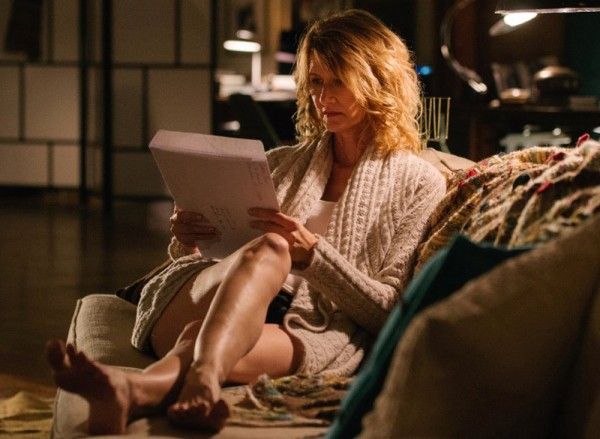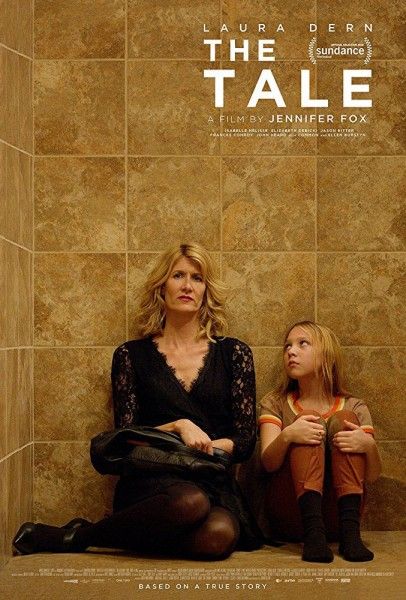From writer/director Jennifer Fox and based on her own true story, The Tale (premiering on HBO on May 26th) chronicles on woman’s personal and powerful investigation into her own childhood memories and how we reshape them, in order to survive. When a short story resurfaces that Jennifer (Laura Dern), who’s now an accomplished documentarian, wrote for school at age 13, she is forced to re-examine her first sexual experience and sets out on a journey to find those people from her past, in an effort to understand the how and why of it all. The film also stars Isabelle Nélisse, Elizabeth Debicki, Jason Ritter, Frances Conroy, John Heard, Common and Ellen Burstyn.
During this 1-on-1 phone interview with Collider, acclaimed documentary filmmaker Jennifer Fox talked about the experience of telling such a personal story, what made HBO the right home for its release, the process of writing the script, casting the older and younger versions of the same character, how delicately they approached the work with Isabelle Nélisse, the hope that this film will open a dialogue about the truth of sexual abuse, where she’d like to take her work next , and her desire to push the boundary of the art of filmmaking.
Collider: I appreciate you talking to me about this movie. This story is so beautifully and sensitively told, and you approach the storytelling in some really interesting ways that I haven’t seen before.
JENNIFER FOX: Thank you! Thanks so much.
What’s it like to tell such a personal story, screen it for audiences, and then get a standing ovation in response, multiple times?
FOX: We struggled so hard to get this film made and done. To get it finished and to have people believe in it, the anxiety was so great, by the time that we got to Sundance. We didn’t know what was gonna happen. For me, it was really surprising. It was just an absolute surprise because I didn’t know if the film was just going to be panned or what. I know it’s a difficult film, and I know that it does things that other films don’t do and that we’ve never seen before, so I was just, quite frankly, almost sick with worry. It’s a blessing. It’s a miracle that the film has been received so well. We just had our tenth standing ovation, after a screening in Pennsylvania. Every single screening has gotten a standing ovation, so it’s pretty extraordinary. I suspect that it represents a moment when people really want to stand up for stories like these and embrace new storytelling and take on a subject that’s been completely taboo.
Presumably, you made this with the thought that it would hit the big screen, so what ultimately made HBO the right home for this story?
FOX: I think about distribution a lot, and I’ve been watching what’s been happening theatrically and how tough it is in America to get people to leave their homes. The films that have been succeeding are lighter, on the independent level. We know that the big films are escapist, but on the independent level, we just have not seen a film this complex, frankly dealing with such dark topics. The darker ones have not gone as far as this, so I was really concerned that this film just wouldn’t draw the audiences, on a topic like this.
Going in, I didn’t think any theatrical distributor could put the weight and the money behind getting it out there. The kind of PR machine that HBO has, with as quickly as HBO can do it, I knew we’d have all of this effort to satisfy my ego. With a theatrical release, so few eyeballs would actually see it. HBO has millions and millions of viewers, who will see it around the world very quickly, and it will be now. I certainly thought we were gonna do theatrical, but I’m a pragmatic person and when we talked to HBO, I decided to make a 180 degree turn because I thought it would be better for the film.
Obviously, this is a story that you’ve been sitting with for a long time because it’s your life. What was the process of writing the script like? Did it happen very quickly, or was it something that you took a lot of time with?
FOX: I think I wanted to be able to dive in, but I was finishing this big series, Flying: Confessions of a Free Woman, and I was already way overdue and committed to finish this other big piece, called My Reincarnation, which I’d been working on for 20 years. It’s a big longitudinal study of a Buddhist father and his son. I had funding to complete it and they were really clicking their heels and saying, “Okay, we’ve waited, and now you’ve gotta do it.” So, I had to work on finishing one film while finishing another film, so I had to hold myself back and work on this script on nights and weekends, as I was finishing these big pieces. It was a slower process. I think writers write, no matter what, whether or not it’s a full-time job. It’s just part of what you do. I always write, but this went through many stages. At first, I wrote the whole narrative of the backstory in 1973. That was year one. And then, I put it aside. When I looked at it again, I was like, “No, I don’t even care about this film because it’s so obviously a horror story. It’s not really what I want to talk about. I want to talk about how I spun the memory of it and how the child self-created this other narrative.” That spawned a whole other process of figuring out how to show memory and show the way the mind works. It was a whole other investigation that went on for a couple of years.
What led to you to tell the story in the present day, where you could speak to the younger version you?
FOX: What’s so lovely, when you’re in this open-ended investigation – and I was investigating my mind and the story – is that I thought I was this continuous self and that I knew who I was at 13 because I was basically the same now, but I had this moment when I realized I’m not actually the same person. In fact, I don’t even know who that 13-year-old was, and I’m not sure I would even recognize her. That was a lightning bolt, where I went, “Oh, my god, what do I do with that? How do I write a character that I don’t know?” I realized that, if I were to meet my 13-year-old self now and she were to meet me, she would probably hate me because I’ve crossed over and become an adult, and I wouldn’t see her naivete and her vulnerability, and I’d probably lock her in her room. That spawned the idea of, “What if you could dialogue with her? What if you could ask her questions to find out who she is?” For me, that reality was as real as the reality I’m in now, in the present. So, I really also wanted to tell this in a very ordinary way. It’s not this rainbow fantasy. It’s not special. It’s just conversations that we have in our head, all the time. The past should be as real as the present, and the present should be as real as the past, in the film.
What was it like to cast the older and younger version of the character? Did you feel like you were casting people to play you, or did it feel like you were casting people to play a character?
FOX: It was a bit of both. I was very adamant that I wasn’t looking for someone who looks like me. Laura Dern looks nothing like me. I’m a short Jewish girl, so I felt like that gave me a measure of distance from the character. Laura Dern was cast first, long before we had any financing, so then it became a matter of finding an actress who would match Laura Dern. What I was really looking for wasn’t a look, as much as a quality that Laura Dern embodies, which is a woman that is her own person and who’s a maverick. I wanted a woman who could go to Pakistan or India with a camera, and who’s woman that is defining her own life, not a pretty little flower. That took out a lot of actresses. Laura Dern has that quality that I was looking for, to play this character. And then, casting Isabelle Nélisse, she had to be blonde and blue-eyed, of course, but I was also looking for a child that wasn’t a Lolita. I wanted her to look like a real adolescent, as I did. I was completely flat-chested, with no hips. I also wanted someone with that innocence, and who wasn’t a pretty girl, but was more of a tomboy.
There are a lot of scenes in this film that have very difficult subject matter and that are difficult, emotionally. How did you handle shooting those scenes with the younger actress? How did you approach working with her to get what you wanted from her, but also not traumatize her?
FOX: We never did anything with Isabelle that had any sexual content. We worked with a body double. The difficult scenes between Jason [Ritter] and that are seemingly Isabelle are actually highly constructed in the edit room. Isabelle was standing upright on a vertical bed, to do a close-up shot of her, and we just rehearsed totally non-sexual cues. I’d say, “Act like a bee is stinging you. What would it be like, if your grandmother was chasing you? What kind of face would you make, if you had just licked salt?” We rehearsed all of that prior, and then we ran through it like we were asking her to recall a memory. None of it had anything to do with the content. Now, she’s a really bright kid, so she knew what scenes we were doing. She read the script and we talked about it for an hour or two, before we even cast her. We also talked to her parents. It was a long casting process. We felt that she could handle it, and her parents felt that she could handle it. She was highly protected on set. We had a representative of the Screen Actors Guild there, we had a psychologist on set, we had her mother on set, we had all the producers, and I was on a microphone, so there was never any conversation that wasn’t listened to. She was highly observed, poor Isabelle. She sometimes said it was too much, but we took really good care of her and we created a safe environment. I’ve checked in a lot with her mom, even since we shot, and she feels that Isabelle really is all right and can handle it. Isabelle watched the film many times before Sundance, at home and on a link. She even brought a friend to watch it with her and her family watched it. There have been a lot of hoops that we’ve gone through to make sure that she’s taken care of. There is a level that we were compelled to do, by the state of Louisiana, but there are also heavy-duty child pornography laws in the state of Louisiana. Jason wasn’t allowed to touch her. In the scene where they’re in front of the fire and they’re just talking, if you notice, his arm is behind her on the couch, but he was not allowed to physically put his arm around her, in the state of Louisiana. There are a lot of good laws about taking care of child actors, that I think are really important, and of course we complied with them. That was always our intention. Having gone through my own experience, a film that would traumatize another child would not have been worth making.
Rather than shaping the conversation in one way or another, are you hoping that this film just allows for the conversation to happen?
FOX: Yes, I do. That is a piece of it – to take the lid off this taboo subject – but my message is very much that sexual abuse is much more complicated and nuanced than anybody has ever said. We need to look at it in that way, in order to understand it and take it out of its box. When we were preparing to take the film out, before it came out at Sundance, we did a lot of test screenings with psychologists and older student groups, and we did a lot of testing with lawyers who work in the field of advocacy and who try cases of sexual abuse, and we got amazing comments. Even for them, this is the first time they had seen portrayed what they see in the field. They simply had never seen a film that showed what they saw with children or adult survivors. So, in a sense, we’re really hoping that this opens a huge dialogue about the truth of sexual abuse.
What’s next for you? Are you going to return to documentary filmmaking, or would you like to do more narrative features, like this film?
FOX: I plan to continue in fiction. The moment that I decided to make this, I was very clear it had to be fiction. Every work I’ve done has pushed the boundary of my artistic process, and I got to the point where I felt the next frontier was working in fiction. I feel like I’ve just begun, and there’s a lot that I want to do now. My work has been so diverse. I’ve done really big series, and I’ve done feature films. I felt like it was just time for me to find a new palette. So, I’m really excited about fiction, and I’m working on some new pieces, right now. I hope to write other screenplays, and also direct other fictional work. I am very, very, very interested in authenticity. I want to create art, but I also want to change the world. I don’t only want to change the world and I wouldn’t be happy just creating art, so the two have to work together. I’m really interested in a new language and a new form, and always pushing the boundary of the art of filmmaking.
The Tale premieres on HBO on May 26th.

